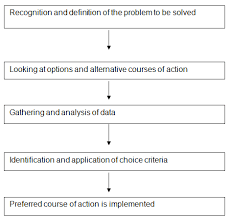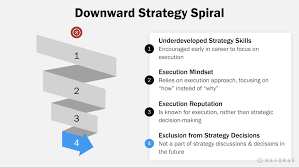Reflective Decision Making: A Guide to Making Thoughtful Choices
Reflective decision making is a process that involves taking the time to consider all aspects of a decision before taking action. It requires introspection, critical thinking, and evaluation of potential outcomes.
One key aspect of reflective decision making is self-awareness. By understanding your values, beliefs, and goals, you can make decisions that align with your true desires and aspirations. Reflecting on past experiences and learning from them can also help inform your decisions moving forward.
Another important component of reflective decision making is considering all available information. This may involve gathering data, seeking advice from others, and weighing the pros and cons of each option. By fully understanding the implications of your choices, you can make more informed decisions.
Taking the time to reflect on your options can lead to better decision outcomes. It allows you to consider different perspectives, anticipate potential challenges, and identify opportunities for growth. Reflective decision making empowers you to take control of your choices and move forward with confidence.
In conclusion, reflective decision making is a valuable skill that can help you navigate life’s challenges with clarity and purpose. By being intentional about your choices and taking the time to reflect on them, you can make thoughtful decisions that align with your values and goals.
6 Essential Tips for Mastering Reflective Decision Making
- Take time to reflect on past decisions and their outcomes.
- Consider the factors that influenced your decision-making process.
- Seek feedback from others to gain different perspectives.
- Identify any biases or assumptions that may have affected your decisions.
- Learn from both successful and unsuccessful decisions for future improvement.
- Practice mindfulness to enhance self-awareness during the decision-making process.
Take time to reflect on past decisions and their outcomes.
Taking time to reflect on past decisions and their outcomes is a crucial step in the process of reflective decision making. By examining past choices and their results, we can gain valuable insights into what worked well and what could have been done differently. This reflection allows us to learn from our experiences, identify patterns, and make more informed decisions in the future. It helps us understand our decision-making processes better and empowers us to make thoughtful choices that align with our goals and values.
Consider the factors that influenced your decision-making process.
When practicing reflective decision making, it is crucial to consider the factors that influenced your decision-making process. Reflecting on these factors allows you to gain insight into your thought patterns, biases, and external influences that may have shaped your choices. By understanding the underlying reasons behind your decisions, you can make more informed choices in the future and develop a deeper awareness of how various factors impact your decision-making process.
Seek feedback from others to gain different perspectives.
Seeking feedback from others is a valuable tip in reflective decision making as it provides an opportunity to gain different perspectives. By soliciting input from individuals with diverse backgrounds and experiences, you can broaden your understanding of the decision at hand. Feedback allows you to consider viewpoints that you may not have previously thought of, leading to a more comprehensive assessment of the situation. Incorporating feedback into your decision-making process can help you make more well-rounded and informed choices that take into account various angles and considerations.
Identify any biases or assumptions that may have affected your decisions.
When practicing reflective decision making, it is crucial to identify any biases or assumptions that may have influenced your decisions. By acknowledging and understanding these biases, you can gain a clearer perspective on your thought processes and ensure that your decisions are based on rational reasoning rather than preconceived notions. Being aware of your biases allows you to make more objective and informed choices, leading to better outcomes in the long run.
Learn from both successful and unsuccessful decisions for future improvement.
Learning from both successful and unsuccessful decisions is a crucial aspect of reflective decision making. By analyzing the factors that led to success as well as those that contributed to failure, individuals can gain valuable insights for future improvement. Understanding what worked well in successful decisions can help replicate positive outcomes, while identifying the pitfalls in unsuccessful decisions can prevent similar mistakes in the future. This holistic approach to learning from past experiences enables individuals to continuously grow and refine their decision-making skills, ultimately leading to more informed and effective choices in the long run.
Practice mindfulness to enhance self-awareness during the decision-making process.
Practicing mindfulness can significantly enhance self-awareness during the decision-making process. By being fully present and attentive to your thoughts, feelings, and surroundings, you can gain a deeper understanding of your values, beliefs, and motivations. Mindfulness allows you to tune into your inner voice and intuition, helping you make decisions that are aligned with your true desires and aspirations. Incorporating mindfulness techniques into your decision-making routine can lead to more thoughtful and intentional choices that ultimately contribute to your overall well-being and success.




